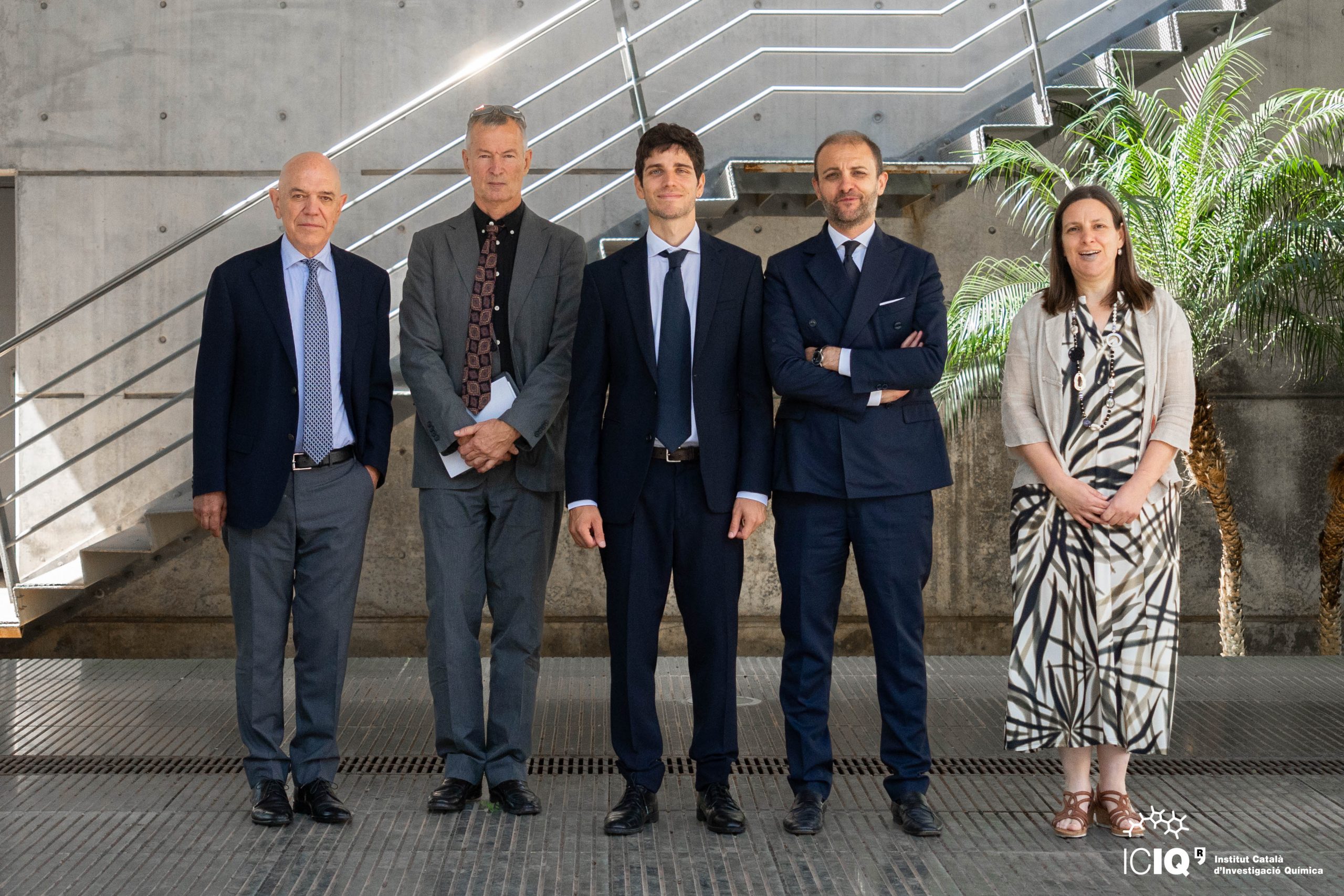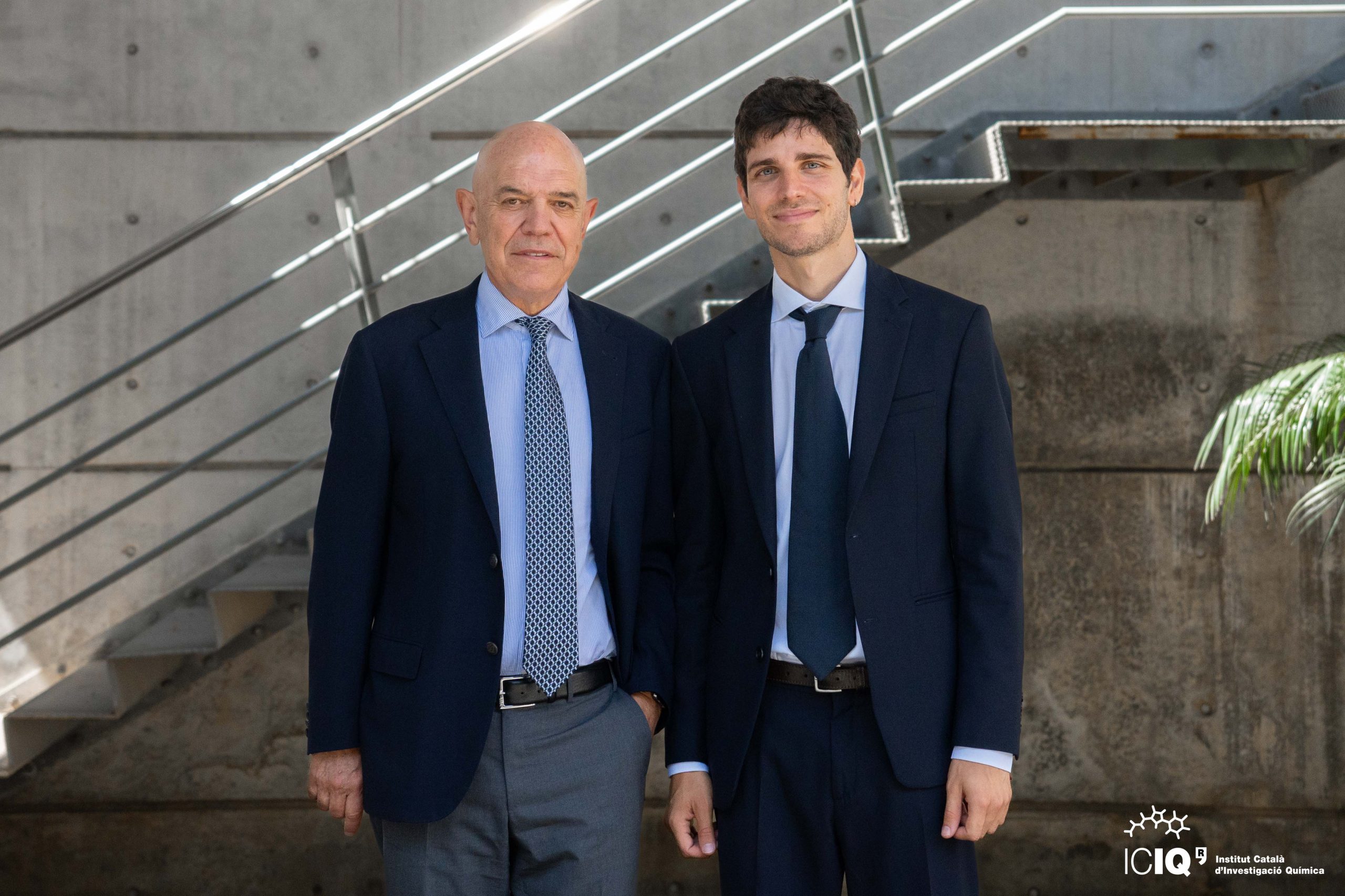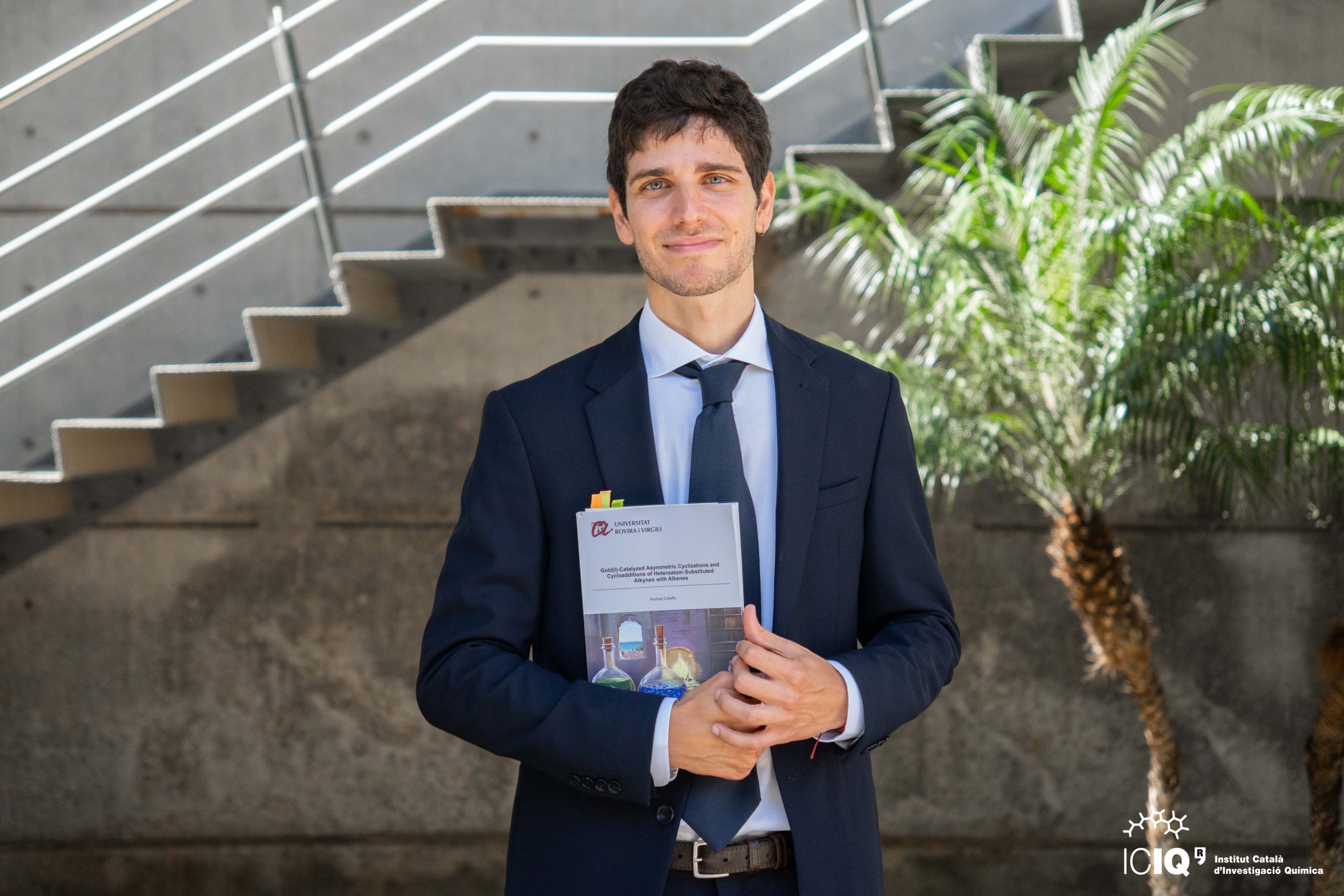Congratulazioni, Dr. Cataffo!
Andrea Cataffo, a PhD student who is under Prof. Antonio M. Echavarren supervision, has successfully defended his PhD thesis entitled “Gold(I)-Catalyzed Asymmetric Cyclizations and Cycloaddtions of Heteroratom-Substituted Alkynes with Alkenes” publicly on Friday, July 5th.
The members of the evaluation committee were Prof. José Mª Lassaletta (Instituto de Investigaciones Químicas, Sevilla) Prof. Maria Besora (URV) and Prof. Vittorio Pace (University of Torino, Italy)

Dr. Cataffo is from Naples, Italy, where he studied Chemistry (Bachelor and Master) at the University of Naples Federico II. Andrea enjoys spending quality time with his friends and family, hiking in the mountains, watching movies and he love animals.
Why did you become a scientist?
I’ve always been interested in how nature works, and what intrigued me about chemistry was the possibility to explore a whole new world invisible to the human eye.
What do you want to achieve as a scientist?
It might sound egoistic, but I mainly do science to have fun. Of course, if what I do also ends up being something useful for society, it makes me happier.
What is your thesis about?
My thesis describes new asymmetric gold(I)-catalyzed transformations involving heteroatom-substituted alkynes to generate small-sized ring systems.
What triggered your interest in the subject of your thesis?
The complex molecular architectures that can be achieved via gold(I) catalysis, as well as the intricate reaction mechanisms that often lie behind it, are very fascinating for someone who likes organic chemistry.
What applications can your thesis have in the future?
New methodologies to synthesize enantioenriched small-sized carbocycles find direct application in drug discovery due to the unique shape and properties of these systems.
The thing that I like most about my thesis is…
It made me explore different aspects of organic chemistry: from reaction discovery to total synthesis, and finally mechanistic investigations by computational means.
From the lessons learnt (or skills developed) at ICIQ, which one do you value the most?
Understanding that there’s always more than one way to do things. I learned to be open to changing my path and exploring unexpected routes that were not part of my original plans.
What ICIQ moment you´ll never forget?
The start of my PhD was right after the first COVID outbreak: we had to work in shifts, and we couldn’t leave Tarragona for a while. While this was scary and oppressive on many levels, it brought me and my labmates to quickly bond with each other, creating a fantastic relationship from the beginning.
What will you miss the most from ICIQ?
Clearly, the people I met. My colleagues soon became friends, and they made this experience unique.
What do you wish you had known at the beginning of your PhD?
That sometimes it’s okay to give up: maybe I would have been less stubborn about trying (and trying and trying again…) when something didn’t work and moved on to explore new possibilities sooner.
What advice do you have for someone who’s starting their PhD now?
You are doing the PhD for yourself and no one else. Even if what you are going to do might be stressful or tough, the number one rule should always be that you enjoy doing (most of) it.
Have you ever been emotional over an experiment/simulation? Why?
I felt frustrated on many occasions when my reactions didn’t work. I think part of being a scientist is learning to give the right weight to failure since it is a fundamental part of the process and it will happen again.
Who/What has been your biggest influence/motivation?
My labmates. Discussing my results with them was key for advancing my PhD projects.
Chemistry/Science is fun because…
Chemistry allows me to be creative while doing science. Being in the lab, mixing different compounds to create molecules that didn’t exist before, is exciting.
What is your favorite molecule?
Cyclopropane: the smallest carbocycle that exists!
If you were a piece of lab equipment, what would you be?
I would be the Glovebox since, during my PhD, I spent a lot of hours using it, and it allowed me to work in the absence of oxygen and, most importantly, in the absence of water, a very difficult task in humid Tarragona.
Tell us something about you that people might not know… During my last year of high school, when I was choosing university studies, apart from chemistry and other natural sciences, I was also considering philosophy.


Related news

Let's create a brighter future
Join our team to work with renowned researchers, tackle groundbreaking
projects and contribute to meaningful scientific advancements






 20-12-2024
20-12-2024 


















